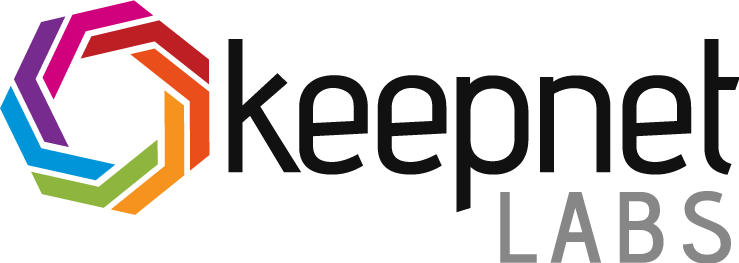This interview is brought to you by Startup Booster. Market your company with rapid, effective promotion across startup and business blogs.
Name: Ozan Uçar
Company: Keepnet Labs

What are you building, and who benefits most from it?
We run a business that touches people. We have an impact on employees, both regular users who get emails and people who are dedicated to cyber security. We aim to train them to deal with cybersecurity risks and shape their behavior. We raise employee awareness of cyber security threats and teach employees to be cyber security agents. Additionally, we are keen to create a secure culture within businesses to fight against risks in a dynamic and effective way.
If cybercrime were measured as a country, it would be the world’s third-largest economy (after the U.S. and China). Over 90% of attacks on organizations start with a malicious email, and 95% of financial losses are caused by BEC. Therefore, we focus on three major problems in the market:
- It is essential to Quantify and manage human risk within organizations and across the supply chain.
- Email-based Incidents go undetected and responses take a long time.
- There are many fragmented overlapping solutions that need different expertise and skill, and these are all costing businesses more.
Our competitors offer varying levels of email security solutions, but only Keepnet offers all necessary solutions under one unique platform to keep customers secure, reduce complexity in their networks, and increase the efficiency of their business. Our competitors don’t offer white labeling for channel partners, on-premise versions, or a marketplace for third-party training solutions.
182 founders interviewed so far. Get interviewed in 10 minutes, via a simple form, for free.
Also, our unique and popular modules Threat Sharing, Email Threat Simulator, and Inbox-Level Incident Response stand out from the competition.
Mostly, our competitors play on the technology side, and only a few of them touch the human layer, but Keepnet combines people, technology, and communities in a unique platform to secure businesses. It brings a third dimension—collaboration—into this market.
There are some problems related to technology that cannot be solved solely by technology. How do we address this? We prepare people for it. We don’t concentrate only on the standard users. We also provide a comfort area to the SOC analysts and give them automation tools to make their job easy. We both facilitate the response process and shorten the time.
CISOs, cyber security managers, and SOC analysts are our most likely buyers as individuals. They benefit from our product the most since they reduce risk. They also improve their team’s quality and efficiency. They enjoy it the most.
In terms of industries, any businesses that use email are our potential customers, but our direct sales are usually to the finance sector followed by the insurance industry.
What is one of your startup’s most impressive accomplishments?
So far, we have grown organically, with no investment assistance. This is really a great success story. Imagine starting a business in a very expensive country like the U.K. Despite having no investment assistance, you nonetheless pay salaries to about 40 individuals. Additionally, there are contractors. You accomplish all of this by yourself.
What has been the biggest challenge so far, and how did you overcome it?
There were technical challenges as a result of rapid expansion. As the company grew, we experienced difficulties that we could not have predicted. They kept me awake at night. The team was inexperienced. I wonder if my challenge was technical or people-related. If I could go back in time, I would consider hiring “trained employees.”
We solved this by turning the crisis into an opportunity. With a problem, we sometimes find an opportunity to demonstrate our agility to the customer. I tell them that when they have similar problems with other companies, the solution may take weeks or months, but we intervene and eliminate the issue right away. Then we always introduce a new module or feature to the product. Those tensions can push us to meet new people.
What tool or app could you not live without and why?
I couldn’t live without email.
What marketing strategies have worked for you?
In our first three years, we reached customers directly. With them, we gained a reputation. People and dealers started to think that our product attracts attention in the market and wanted to cooperate with us to gain market share. On the other hand, in the last two years, we have made progress through channels. Through resellers and MSSPs, you can build a small and medium-sized customer base, especially with the aid of MSSPs.
In the short term, resellers and MSSPs are profitable. In a competitive market like the U.S., your product can be sold to 3,000 clients and used by 1 million active users. It’s a huge help in this regard. We developed a model and demonstrated its effectiveness. I use it for growth targets, but if we think in terms of profitability, you are not the owner of the customer. This is a loss.
We approached our potential buyers with the low-hanging fruit strategy. When you pick fruit from a tree, you start with the fruit closest to you. The same is true for the customer. You start with those who are close to you in terms of geography and location and those you have worked with before.
What’s the best specific piece of advice you have for other entrepreneurs?
First of all, you should know that no one can explain and market your product as well as you. If you want to sell it, be in charge of your company.
My second piece of advice would be as follows: With my first two startups, I always concentrated on training people. However, if you have a rapidly expanding international business, I would say never hire someone to train. Hire people who are already trained and experienced.
What does your company’s trajectory look like over the next five years?
Keepnet will require mergers along the way. It continues to prepare a series of improvements, but there are some constraints on expansion imposed by the corporate sector. Merging will be a solution that will transform the course of cyber security. It will be a breakthrough solution.
Want to be interviewed just like this? Fill out this simple form.



